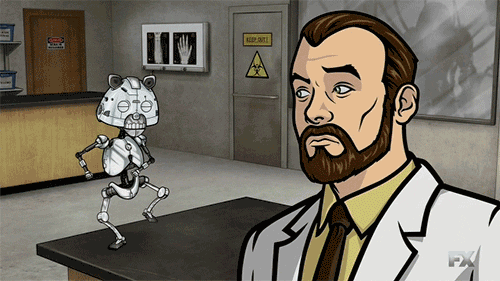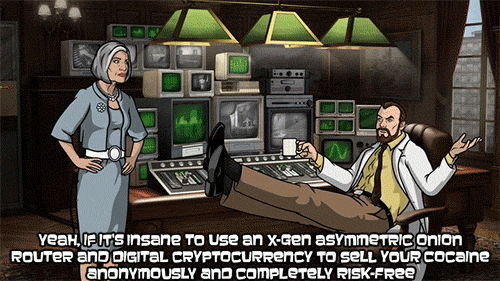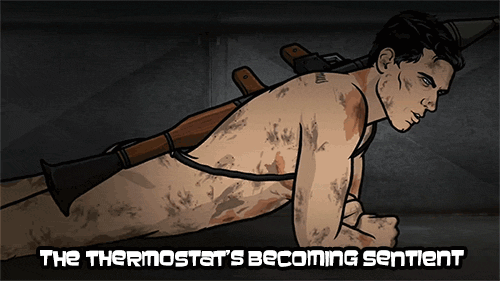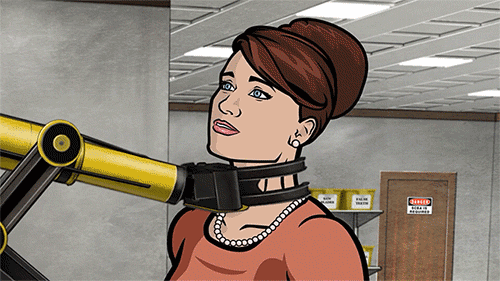
I don't usually read books (non-fiction or otherwise) over extended periods of time. And, if not for the limitations of library-lending, I might have inched through this one at an even slower pace (giving myself ample opportunity to rock quietly in the corner in terror).
Things didn't start out this way. I tore into the first several chapters of Future Crimes: Everything Is Connected, Everyone Is Vulnerable, and What We Can Do About It with my usual aplomb. But there's only so much risk one can absorb before declaring defeat. Author and former cybercrime cop, Marc Goodman, can't be faulted for the breadth of threats out there. However, by the time I got to the What We Can Do About It sections (the last 50 pages or so), I felt decidedly worn down. So, take this review with a grain of salt, because it's a good book with a whole boatload of information that's often ignored.
The Future Is Now
Goodman starts off by stating that he is well aware of and for the wonders of modern technology— and I'm with him on that (as noted in my review of Nation of Enemies). It's not about a showdown, but we need to face the changing techno-landscape with an attitude akin to that of Hawaiians regarding the ocean; one of respect and awareness that, while beautiful, it's more powerful than you can imagine, and can have brutal consequences.
Furthermore, we need to be thinking about Moore's Outlaws* now (and also yesterday, and the day before that), which will require effort, since we're not used to thinking in exponential terms. Also, said outlaws (and their corporate equivalent, which he refers to as “Crime Inc.”) are already outpacing us in a serious way (the whole Silk Road affair is barely a sneak peek).
Opening Pandora's Virtualbox*
Things get overwhelming quickly. As nefarious as the DarkNet may be, cryptocurrency and onion routers seem like reasonable precautions once Goodman starts discussing just how little privacy we have, given the digital exhaust we produce just tooling around the regular old interwebs on the daily. With the Internet of Things, we invite more and more connected devices into our home, all of which are apparently quite hackable (though I'm not really ready to start worrying about pedophiles storing illicit images on my Nest just yet).
‘Bots & ‘Borgs
First things first — robots. Though no definition of the term satisfies all parties involved, robots are basically machines that can be programmed to carry out tasks (with varying levels of autonomy). The world is already chock full of ‘em, though not necessarily in a “rise of the machines” kind of way. However, just because the machines aren't thinking on their own, doesn't mean they're not dangerous. Malware and malicious actors aside, the human error and our “in screen we trust” attitude has been and will continue to be a problem. There are plenty of examples, but I think the recent Robot Grabs, Crushes Man To Death incident at a German Volkswagen factory sums it up pretty well.
My only beef with the Goodman's treatment of industrial robots is that he kind of neglects Bayesian counterfactuals. It's been awhile since I've read The Jungle, but I'm pretty sure that factory safety was a problem long before Roomba came along. But, the remote threat is new(ish), and, as robots become increasingly autonomous, we've got some serious thinking about Asimov's Laws ahead of us.
Cyborg is another somewhat ill-defined term, though I'll go with the definition that doesn't include glasses and/or peg-legs. Goodman's bionics section, “Hackable You,” does discuss the advantages and opportunities presented by these technologies. The problem, as suggested by the title, is that these computers inside of us aren't all that secure— a problem compounded by the fact that updating the hardware involves cutting people open.
And then, of course, there are the big fears that could potentially make “Surviving Progress” a tricky feat. Whether we're talking 'bots or 'borgs, a lack of foresight could doom us all.
The Final Frontier
I can't blame you if your first inclination is to throw your hands in the air and declare defeat. Goodman suggests practicing better “cyber hygiene”— a public health approach that actually makes quite a bit of sense. After all, you can't unilaterally protect your information if your friends are running around giving Candy Crush access to their address book, while posting and tagging photos of you on facebook willy nilly (though my advice would be to ditch that friend).
This book's probably better than I'm giving it credit for, an easy 7/10 stars, and maybe more once I wrap my head around it all. But the look on Krieger's face, below, pretty much captures my feelings upon finishing.
 _________________________________
_________________________________
* Goodman's super into wordplay, so brace yourself for that.

 Log in with Facebook
Log in with Facebook 





























